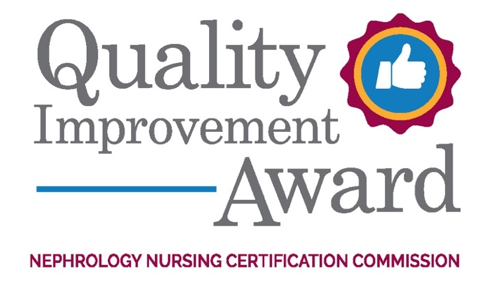 |
 |
NNCC Presents...
Your Stories
|
|
|
She Puts Her Heart Into Her Work
|
Shatonna D. Powell, CCHT,
Certified Nephrology Technician, Chicago, IL
"As a nephrology technician, I try to encourage, inspire, and support each and every one of my patients. I continuously educate and explain the ins and outs of life in the dialysis world. I help my patients to understand different prevention strategies and treatments, and I remind them that each case, each patient, is unique.
|
|
|
|
I feel so grateful to play a role in saving lives. I will continue this journey with all my patients."
|
|
|
|
 |
HHS Extends COVID-19 Public Health Emergency
|
|
The public health emergency surrounding the COVID-19 pandemic has been extended by the Department of Health and Human Services for another 90 days. The extension was effective as of January 21 and extends into April.
What does this mean for you and your certification? If you’re due to certify or recertify, this requirement will be waived during this period. For more details on the waiver and it’s impact on your dialysis certification, read the NNCC FAQs Regarding CMS Waiver and Certification Credentials.
|
|
|
 |
|
|
If you’re an NNCC certified nurse, nurse practitioner, or dialysis technician who has developed a quality improvement project that promotes optimal patient outcomes, consider applying for the NNCC Quality Improvement Award.
The winner receives $1,000, an engraved plaque, and national recognition by NNCC. Full details are available here . The deadline to apply is June 15, 2021.
|
|
|
|
|
|
|
The Accreditation Board for Specialty Nursing Certification (ABSNC), announced on January 7, 2021, that NNCC has been granted reaccreditation for the Certified Nephrology Nurse (CNN) and Certified Dialysis Nurse (CDN) certification programs.
|
|
|
 |
Stop By Our Virtual Exhibit Booth!
|
NNCC will be exhibiting at several upcoming events. We look forward to ‘virtually’ seeing you there!
|
|
|
|
Take the NNCC January Pop Quiz
|
 |
Advanced dialysis technicians, it’s your turn to answer the January “NNCC Question of the Month!” The question is posted on the NNCC Facebook page. You’ll get a list of options, an explanation for the correct answer, and reference information. You can also go right to the question here. Good luck!
|
|
|
|
 |
 |
|
ANNA Expert Examines Antimicrobial Resistance for USA Today
ANNA’s nephrology research expert Amber Paulus, PhD, RN, CPHQ, CPPS, explores antimicrobial stewardship and infection prevention in this article for a health care supplement in USA Today. (Future of Personal Health, 12/4/20)
|
|
ESRD Treatment Choices Model Can Transform Kidney Care
The End-Stage Renal Disease Treatment Choices (ETC) model began January 1. The goals of the model include increasing home dialysis, transplants and more. (Healio, 12/20)
|
|
U.S Renal Care to Administer COVID-19 Antibody Therapy at Dialysis Clinics
U.S. Renal Care announced it is in the process of obtaining bamlanivimab, a monoclonal antibody therapy that has received emergency use authorization by the FDA for the treatment of mild-to-moderate COVID-19. (Healio, 12/30/20)
|
| |
 |
 |
Nurses, Do You Need to Advocate for Change?
Here’s a great tool for nurses who need to advocate for patients, groups, communities, and populations: Use this “Elevator Pitch” to help you craft your points and get results. (American Nurse, 1/13/21)
|
Study: Even One Drink a Day Can Affect Heart
A common health health message is that moderate drinking is heart healthy, however one large new study found that even one drink per day may raise the risk of atrial fibrillation. (U.S. News & World Report, 1/14/21)
|
|
|
| |